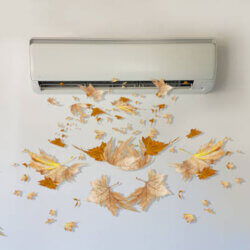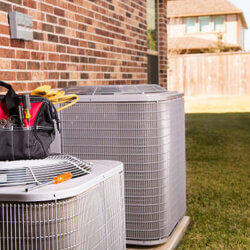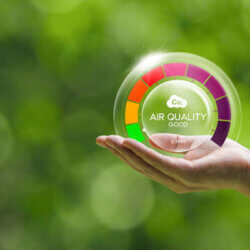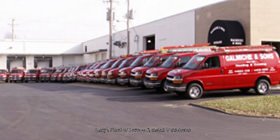
While the best way to conduct a complete Home Energy Assessment is to contact a professional, you can also conduct a basic walk-through on your own.
Although it may not be as thorough as a professional Home Energy Assessment, the do-it-yourself Home Energy Assessment will save you time and money while helping you pinpoint some of the more noticeable problems that are draining your energy!
Energy-saving technology has become more and more desirable in recent years, and for good reason when you consider the many advantages that come with it.
To speak with one of our heating & air conditioning experts and learn more about how you can save money with an efficient HVAC system, you can reach us in St. Louis through our convenient online form or by calling 314-993-1110.
Conducting Your Home Energy Assessment
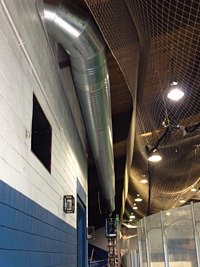
Follow the steps below for a Home Energy Assessment that you can do on your own today:
- Locate and Seal Air Leaks – The first thing to do during your Home Energy Assessment is to make a list of obvious air leaks or drafts. Energy savings from sealing air leaks can amount to 5% to 30% a year. Below is a list of some areas you should inspect for air leaks:
- Windows
- Door Frames
- Flooring
- Ceiling
- Walls
- Fireplaces
- Check Insulation – Always check your insulation during your Home Energy Assessment. Heat can easily be lost through your ceilings and walls if your insulation levels are less than the advised amount. Also, make sure that no attic vents are covered up by misplaced insulation.
- Inspect Heating and Cooling Equipment – If your unit is more than 15 years old, it is advised that you replace it as new equipment is much more energy efficient and effective. Additionally, always check your filters during your Home Energy Assessment and replace them as needed. Generally, you should change them about once every month or two, especially during periods of high usage.
- Evaluate Appliances and Electronics – This is a must when you are doing your Home Energy Assessment considering how much energy all of these use combined. Examine the different appliances and electronics you have in your home and think about their energy use. Consider energy efficiency ratings (if applicable) and what kinds of savings you could create by upgrading old appliances.
- Consider Wattage of Light Bulbs – If you have never inspected your light bulbs, this is important during your Home Energy Assessment. Energy for lighting usually accounts for about 10% of the electric bill. Make sure that you are not using a larger wattage size than you actually need. Also consider replacing the bulbs in your home with more efficient products such as LED bulbs.
Contact Us Today to Speak with a Home Energy Assessment Professional
If you find yourself searching for an HVAC company that can offer a wide range of services to meet your heating & air conditioning needs in St. Louis, look no further than Galmiche & Sons Heating & Cooling. Our friendly technicians can help you evaluate the efficiency of your HVAC systems and can recommend the best equipment and steps to improve home energy efficiency. You can reach us by calling 314-993-1110 or through our online contact form.



